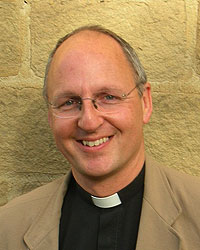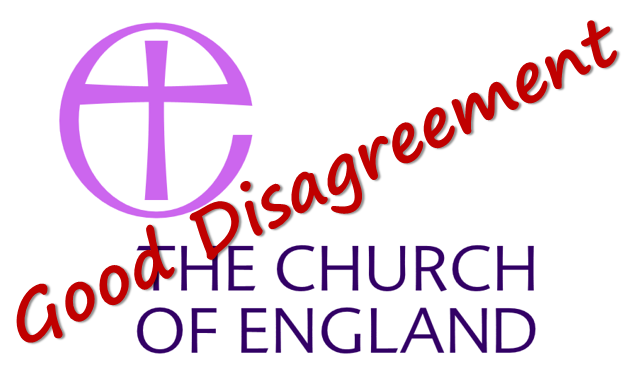As the Church of England grapples with its division over the issue of the role of LGBTQ persons in the life of the church, the phrase ‘Good Disagreement’ has emerged as a shorthand way of describing means of living together as a church while holding sharply divergent views.
Accepting Evangelicals is a group of evangelically minded Anglicans who “believe the time has come to move towards the acceptance of faithful, loving same-sex partnerships at every level of church life, and the development of a positive Christian ethic for gay, lesbian, bisexual and transgender people.” So, on their website they are initiating a series of essays that seek to describe and define what exactly ‘Good Disagreement’ might look like.
 The first is by the David Ison, the Dean of St Paul’s. In it, he seeks to fairly assess the limits of ‘Good Disagreement’ in the light of the anti-LGBTQ group Reform’s call to boycott facilitated discussions in the church. It’s well worth a read, and in this excerpt he pulls no punches in getting to the crux of the matter;
The first is by the David Ison, the Dean of St Paul’s. In it, he seeks to fairly assess the limits of ‘Good Disagreement’ in the light of the anti-LGBTQ group Reform’s call to boycott facilitated discussions in the church. It’s well worth a read, and in this excerpt he pulls no punches in getting to the crux of the matter;
And in the light of Reform’s response, there are also questions to be asked about the whole enterprise of ‘Shared Conversations’. Reflection ‘in the light of scripture’ brings in two of the classical Anglican markers of theological authority, the Bible and Reason, to which should be added an awareness of and exploration of Tradition – which requires a serious engagement with history which is not necessarily present in the heat of the debate. Further, the idea that there can be ‘safe space’ and a ‘safe environment’ for people to be vulnerable about their sexuality could only be true where those with power relinquish it. How reasonable is it to expect gay ordained and lay people, in a Church which discriminates against and condemns the expression of their sexuality, in a wider British culture which only very recently has begun to be more open about sexuality and where homophobic bullying and even murder are still current, let alone a world-wide culture in which homosexuality is in many places punished by imprisonment or death, should make themselves vulnerable to those who may want to exclude them? Will heterosexuals begin the discussion by sharing their struggles and experiences with their own sexuality, including those of their sins and shortcomings which might open them to the charge of hypocrisy, the loss of their reputation and authority, and possible disciplinary action? After all, far more damage is done in and to the Church by misbehaving heterosexuals than by gay people.
posted by Jon White

